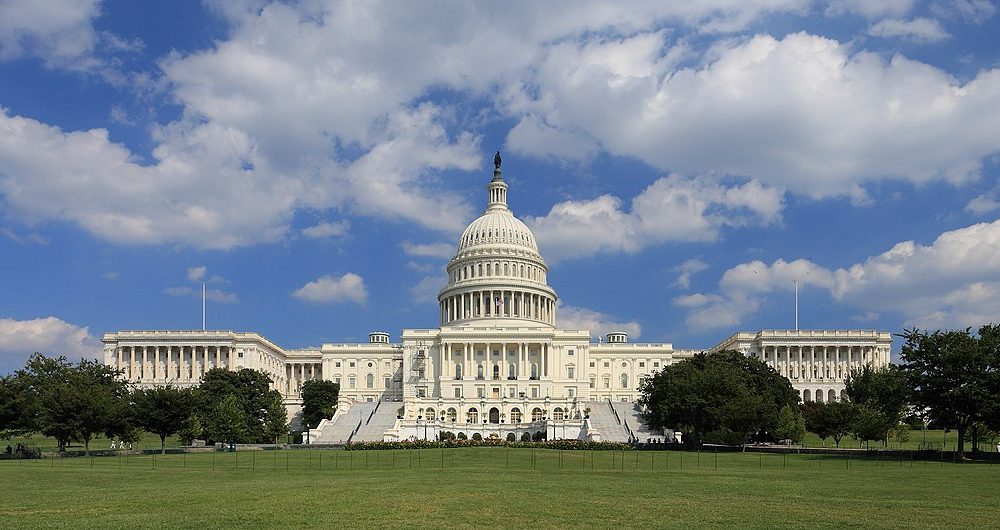April 1, 2021 •
US Supreme Court: Facebook Did Not Violate TCPA

US Capitol - by Martin Falbisoner via Wikimedia Commons
On April 1, the United States Supreme Court unanimously decided automatic text messages sent to telephone numbers culled from a database of a sender, in this case from Facebook, and not from a system having the capacity either to store […]
On April 1, the United States Supreme Court unanimously decided automatic text messages sent to telephone numbers culled from a database of a sender, in this case from Facebook, and not from a system having the capacity either to store or to produce a telephone number using a random or sequential number generator, is not prohibited under The Telephone Consumer Protection Act of 1991 (TCPA).
While this decision does not apply to robocalls, it does seem to permit those in political campaigns to allow voice calls and text messages, taken from their databases, to be automatically made from technology not using a random or sequential number generator without fear of violating the TCPA.
In Facebook, Inc. v. Duguid, Noah Duguid, who had never created a Facebook account, continually received text messages from Facebook. Duguid alleged that Facebook violated the TCPA by maintaining a database storing phone numbers and sending automated text messages from that database. In a 9-0 decision, the court agreed with Facebook’s technical argument that the TCPA does not apply because the technology it used to text Duguid did not use a “random or sequential number generator.”
The TCPA was enacted to prevent the abuse of telemarketing made with an “automatic telephone dialing system” and other troublesome tactics.
December 11, 2014 •
NYC Campaign Finance Board Approves Rules Related to Text Message Contributions
In its December 11, 2014, meeting, the New York City Campaign Finance Board approved rules implementing Local Law 116 of 2013, which permits candidates receiving public matching funds to receive contributions via text message. The rules permit public funds to […]
 In its December 11, 2014, meeting, the New York City Campaign Finance Board approved rules implementing Local Law 116 of 2013, which permits candidates receiving public matching funds to receive contributions via text message.
In its December 11, 2014, meeting, the New York City Campaign Finance Board approved rules implementing Local Law 116 of 2013, which permits candidates receiving public matching funds to receive contributions via text message.
The rules permit public funds to match the text message contribution once those contributions are paid via the contributor’s phone bill. The rules further establish record keeping requirements for text message contributions and a process to certify the identity of the contributor.
The rules will take effect 30 days after final publication in The City Record.
November 17, 2014 •
NYC Campaign Finance Board Proposes Rules on Contributions by Text Message
The New York City Campaign Finance Board has proposed rules regulating political contributions by text message. The rules set forth the eligibility requirements for public funds matching of text message contributions, the process of record keeping requirements for such contributions, […]
 The New York City Campaign Finance Board has proposed rules regulating political contributions by text message. The rules set forth the eligibility requirements for public funds matching of text message contributions, the process of record keeping requirements for such contributions, and requirements of contributors to certify their identities when making text message contributions.
The New York City Campaign Finance Board has proposed rules regulating political contributions by text message. The rules set forth the eligibility requirements for public funds matching of text message contributions, the process of record keeping requirements for such contributions, and requirements of contributors to certify their identities when making text message contributions.
The rules are open for public comment until November 20, 2014. A public hearing is scheduled for Monday, November 24, 2014 at 10:00 a.m.
December 2, 2011 •
Campaign Contributions by Text Message Coming to Maryland
Contributions would be limited to $10 per text message.
 Following in the footsteps of California, the state of Maryland will be allowing political campaign contributions via text messages on mobile devices. Jared DeMarinis, Maryland State Board of Elections’ Director of Candidacy and Campaign Finance, says this will open the process up to more people giving smaller donations.
Following in the footsteps of California, the state of Maryland will be allowing political campaign contributions via text messages on mobile devices. Jared DeMarinis, Maryland State Board of Elections’ Director of Candidacy and Campaign Finance, says this will open the process up to more people giving smaller donations.
For the full story, read “Rule would allow campaign donations by text message” by Annie Linskey in the Baltimore Sun.
According to the article: “Maryland’s General Assembly passed legislation this year authorizing campaign contributions by text message and directing the Board of Elections to implement the change. The board has drafted regulations, which are subject to public comment before they can go into effect.”
State and Federal Communications, Inc. provides research and consulting services for government relations professionals on lobbying laws, procurement lobbying laws, political contribution laws in the United States and Canada. Learn more by visiting stateandfed.com.

